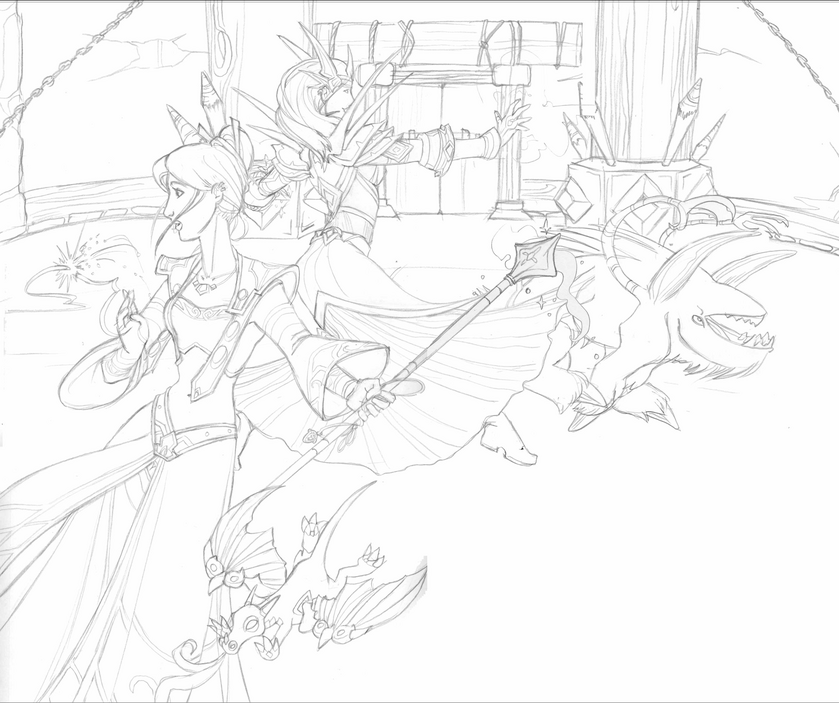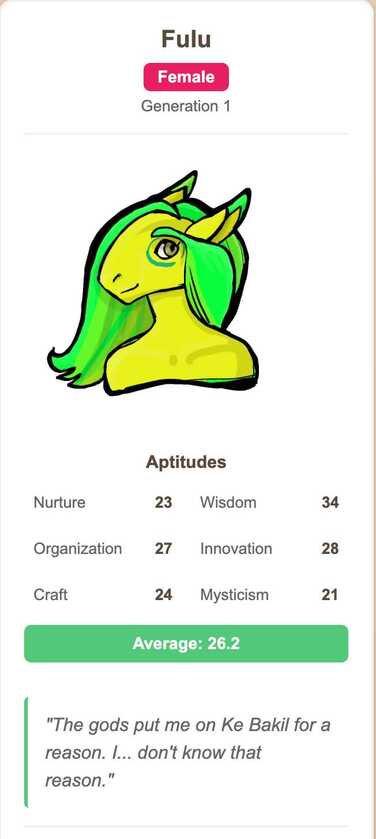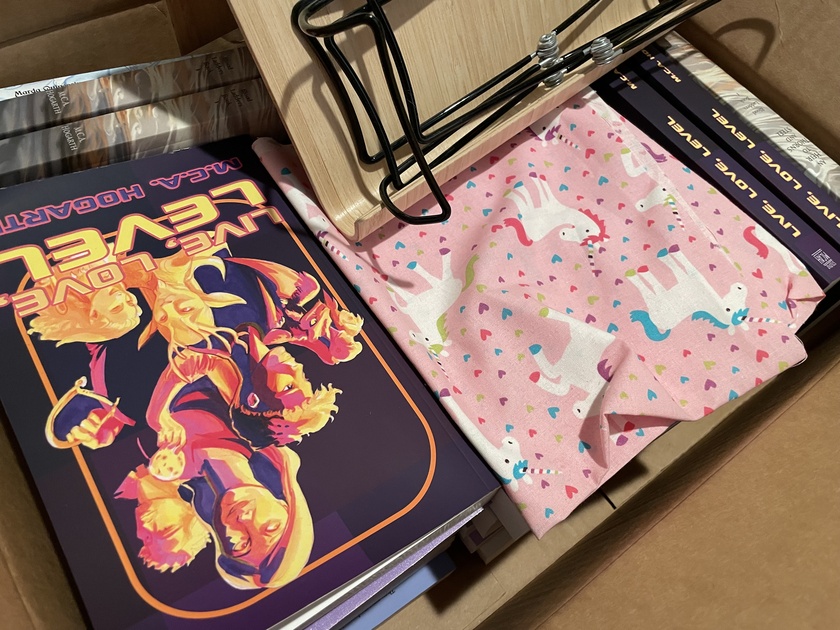
Coding an interface into my Ai-Naidari lexicon is my current side project… though can I call it a side project when my other two projects currently are the Ai-Naidari meta-conversations and a Kherishdar novel? It’s obviously all just swirled together in my brain. But I’ve always wanted some kind of standalone gamified language thingie for this setting and putting it together was beyond both my time constraints and my capabilities.
Except now there’s vibe coding.
For those of you who aren’t terminally online (like me), vibe coding is talking to AI about what you want and having AI code you the results. And… it works. Two days later, I have a minimally viable interface that searches my google spreadsheet and returns you words, teaches you a word of the day, and gives you a random word when you ask. Which is honestly magical. A thing I wanted done for years, just… like that. And my oh my, I have learned a lot.
One – I don’t know how well vibe coding works if you haven’t done some coding and/or sysadmin work in the past. I am by no means a coder; at best, I was good at patching together pieces of things written by other people, and I could construct a useful SQL query for a database most days, and I could figure out some very basic sysadmin tasks. I’ve also written some design documents, and read a bunch, and I have a functional knowledge of how software works at a high level. This means I am able to tell AI what I want (“I’d like the user to select between two drop down boxes, one of which will search for the user input in the ‘meaning’ column and one that will search in the ‘category’ column”).

It also means when something breaks and AI explains what it is, I have a basic idea of what it’s talking about and I know enough to know when something I’m doing is potentially dangerous. At least two problems we ran into, I figured out how to fix myself because I’d had sufficient prior experience with all this stuff to spot it before Grok did. (The most amusing one involved my text editor wrapping long lines, which ‘broke’ them by python standards.)
So I don’t know how well this would work if you’re starting from square one. But when you’re starting from a very rusty square 5, it’s interesting how fast you can blow the rust off and get moving.
Two – interestingly (to me), a lot of the errors I ran into were environmental. I spent all of Day 1 trying to figure out why python wasn’t working on my host, and Grok and I went through hours of trial and error before we pinned it down to a host permission error that I had to contact my hosting company to resolve. Nearly all of my problems weren’t code problems, they were interactions between the code and the environment, because I hadn’t set up the environment… my hosting provider had. So I didn’t know enough about it to guess at the issues until we brute-forced our way down a chain of tests.
Three – Grok and I went through literally hours of trial and error. I don’t think I can express how enormous that is. “This broke.” “Great, check here for error messages. What do you see?” “Here, this.” “Oh, that means xyz, let’s try this.” Over. And over. And over. And unlike a person, Grok never got tired of helping me, never got impatient or frustrated, never wandered off to do something else, and never ran out of ideas.

When I got my first day job, they wanted me to write web pages, which I could do. But they gave me a bare metal RAID and said ‘put some hard drives in this thing, install an OS on it, then install a web server and make the website' which... is like telling someone to make a cookie by showing you the field where they expect you to plant the wheat. If I hadn’t had very patient friends I could run to for advice, I would have failed right out the gate. And everything I ever learned, I learned either by painstakingly searching forums, reading out-of-date books, or asking people to teach me... in their spare time because they were all busy doing their own jobs. And how embarrassing and frustrating it was to have to constantly bother them for help…!
Imagine having AI as your always-on, always-ready teacher. I’m imagining me with that tool back then and how much faster and more effective I would have been. It’s mind-blowing.
Which brings me to four – I am learning a great deal. Some of the stuff we did I am only hazy on; the API business is still at the “just do what Grok says” stage for me. But a lot of the stuff I was hazy on before going into this experiment, I now see far more clearly. Things like data structure (in the ‘okay, the way I have the data set up makes it difficult to use’ sense)… you learn that a lot faster when you try to access it than when you imagine how it’s going to be accessed. You also learn about UI a lot faster when you actually use trial versions of a UI than you do when poking other people’s, or designing a UI without testing a live version.

I can totally see vibe coding being a tool to become a better coder. IF (and only if!) you pay attention and ask it to explain things as you go.
Five – I wonder how many people realize how insanely complex all the backend systems are that power our consensus technological reality. It concerns me how opaque that stuff is. I hope lots and lots of people are learning how to maintain it or we’re going to be in trouble.
Finally… I’m having fun. I’m not going to say spending four or five hours iterating through error messages is everyone’s idea of fun, but there was something magical about the AI always having something new to try, always ready to tell me how to find a tool I wasn’t sure how to use and walk me through it, always encouraging me to keep going. And once my little talking-head interface was up and every change I made was testable live, it was just tremendous. To go from ‘this is an idea I’ve had in my head for years’ to ‘it works, now you just need to make it prettier and more robust’ is… insanely cool.

If you'd like to play with my alpha version interface, pop onto my discord. I'm limiting it for now because I only have 300 credits worth of API calls and I have a lot of testing and fixing I want to do before I run out of them! But I should be able to get this thing to the point where I can make it generally available, and by then I’ll have learned enough to do some other projects I’ve wanted to do, like a book recommendation game, and maybe a wiki interface and some other silly but fun things.
I keep finding use cases for AI that are honestly pretty amazing. Using it as an assistant for conlang was great for me... but this use case is great for my fans, or will be eventually, and I'm really excited about it.
For those of you who don’t care and mostly want to know about the setting stuff… I’m thinking the girl is from Elidzin, the Regal house that marries into Qevellen. But I’m still trying to decide who our hostess is. I should ask...!


















